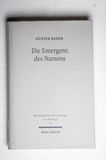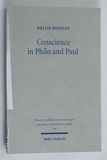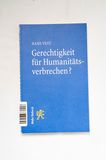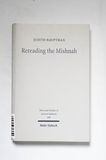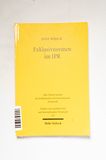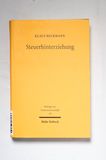
The diet of John the Baptist : locusts and wild honey in synoptic and patristic interpretation / James A. Kelhoffer
Netto: 12.59 €13,47€
inkl. MwSt. zzgl. Versand
Bearbeitungszeit: 3 Werktage
Sofort lieferbar (auf Lager)
1x Stück verfügbar
Buchzusammenfassung:
James A. Kelhoffer offers a comprehensive analysis of Mark 1:6c par. Matt 3:4c in its socio-historical context, the Synoptic gospels and subsequent Christian interpretation. The first chapter surveys various anecdotes about Johns food in the Synoptic gospels and notes that there has never been a consensus in scholarship concerning Johns locusts and wild honey. Chapters 2 and 3 address locusts as human food and assorted kinds of wild honey in antiquity. Chapter 4 considers the different meanings of this diet for the historical Baptist, Mark, and Matthew. Contemporary anthropological and nutritional data shed new light on Johns experience as a locust gatherer and assess whether these foods could have actually sustained him in the wilderness. The last chapter demonstrates that the most prevalent interpretation of the Baptists diet, from the third through the sixteenth centuries, hails Johns simple wilderness provisions as a model for believers to emulate.
FAQ zum Buch
Der Hauptkonflikt betrifft die Deutung des Begriffs „Honig“ in den jüdischen Schriften, da keine Referenzen auf die Zucht von Bienen vorhanden sind. Die möglichen Quellen sind entweder ein süßes Substanzen aus Bäumen wie Datteln oder Feigen oder Honig, der von Bienen produziert wird. Dieses FAQ wurde mit KI erstellt, basierend auf der Quelle: S. 108, ISBN 9783161484605
Die Studie argumentiert, dass Mark 1:6c plausibel auf die Ernährung des historischen Baptisten hinweist, da Heuschrecken reich an Protein und bestimmte Arten von „Honig“ reich an Kohlenhydraten sind. Die exklusive Behauptung von Matthäus 3:4c, dass der Baptist nur diese Nahrungsmittel konsumierte, wird hingegen auf ihre Nährstoffvorteile und mögliche Nachteile geprüft. Dieses FAQ wurde mit KI erstellt, basierend auf der Quelle: S. 125, ISBN 9783161484605
Laut dem Text sterben Heuschrecken in Wasser, weil sie durch den Wind in See oder stehendes Wasser getrieben werden. Dies geschieht rein zufällig und nicht, wie die Alten glaubten, weil ihre Flügel durch die Feuchtigkeit der Nacht nass werden. Dieses FAQ wurde mit KI erstellt, basierend auf der Quelle: S. 129, ISBN 9783161484605
Die American National Academy of Sciences (NAS) definiert einen „normalen“ Body-Mass-Index (BMI) als zwischen 18,5 und 24,99. Innerhalb dieses Bereichs listet sie drei spezifische Werte: 18,5 (niedrig/normal), 22,5 (durchschnittlich/normal) und 24,99 (hoch/normal). Dieses FAQ wurde mit KI erstellt, basierend auf der Quelle: S. 134, ISBN 9783161484605




